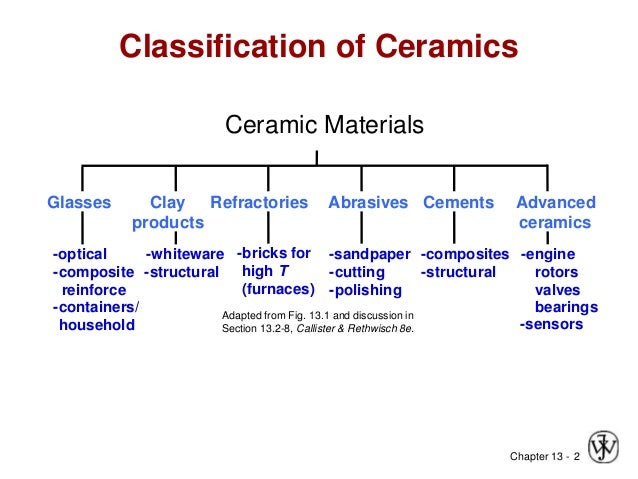Academia edu is a platform for academics to share research papers.
Properties of ceramics materials ppt.
They fail if exposed to too fast temperature changes t t and locally to too large temperature gradients δt δx.
Traditional ceramics include insulating materials glass refractories abrasives and enamels.
Ceramics play an important role in our day to day life.
Ceramic materials are brittle hard strong in compression durability weak in shearing and tension.
Chemically inert they withstand chemical erosion that occurs in an acidic or caustic environment.
They may be crystalline or partly crystalline.
Clay was one of the earliest materials used to produce ceramics but many different ceramic materials.
Properties of ceramic materials.
They generally have ionic atomic bonding between them.
Global ceramic fiber market insights forecast to 2026 free research report pdf.
Https bit ly 2x3blzg ceramic fiber is a fibrous refractory material a light weight high temperature good thermal stability low thermal conductivity specific heat of small and resistance to mechanical shock etc luyang energy saving materials morgan thermal ceramics and unifrax captured the top three.
Most ceramics are compounds between metallic and nonmetallic elements for which the interatomic bonds are either totally ionic bond or predominantly ionic but having same covalent character.
Mass properties e g density ceramics are intermediate density 2 00 6 00 gms cm3 different for allotropes e g glass cristobalite tridymite quartz 2.
They include metal oxides carbides borides nitrides and silicates.
Properties of ceramics different properties of ceramic materials ceramics are oxides carbides nitrides borides of metal ions.
Ceramic materials are susceptible to thermal shock they fail if exposed to too fast temperature changes δt δt and locally to too what you already know and understand.
Technically ceramics are composed of raw materials such as powders and natural or synthetic chemical additives favoring either compaction hot cold orisostatic setting hydraulic or chemical oraccelerating sintering processes.
Small component small σ.
They are formed by the action of heat and subsequent cooling.
Generally they are inorganic and non metallic.
Modern ceramics can be defined as the compounds of metals and non metals.
Gains will be driven by the development of new applications for advanced ceramics and by their increased adoption in already established applications based on superior performance and material properties.

